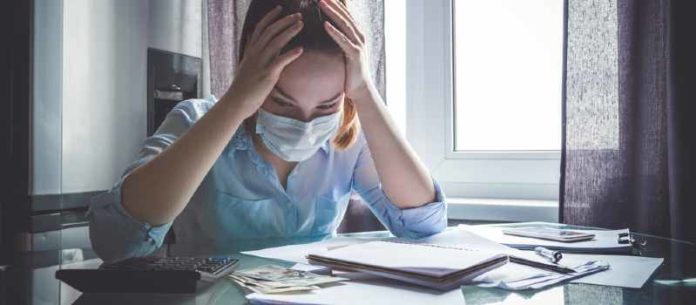The coronavirus has seemed to catch everyone by surprise. This is not because no one was talking about the impact of a potential pandemic, as Bill Gates’ now-famous TED talk has lit a match under internet conspiracy theorists. But it is because many leaders thought that it would not happen in the U.S.
After all, pandemics such as SARS, MERS, and Ebola happen in faraway lands. At least that was the conventional thinking before March 2020. Since then, the world has changed in ways that are difficult to imagine, and for small businesses, they face questions which they never thought they would. For example, should they file for bankruptcy or wait for coronavirus relief?
This can be a gut-wrenching decision for any small business owner, but the decision to try and ride out the shock from the lockdowns which have gripped the world, or to declare bankruptcy have been all too common these days.
One reason for this is the mountain of red tape and the limitations of the programs set up to help small businesses. These barriers can force small business owners to quit before they even get started or to spend what little money they have left on “advisers” who might have little-to-no experience navigating the complexities of SBA Disaster Relief Loans and other government-backed programs.
On the other hand, Harrisburg bankruptcy attorney, Jacobson, Julius & Harshberger notes that “bankruptcy is often the least risky and most viable way to go.” However, this doesn’t mean that most small business owners are lining up to go down this path as some people consider filing for bankruptcy as a form of failure to give up.
Some businesses might not have a choice. For example, is it unsure whether some companies will be allowed to reopen to their full extent when the lockdowns finally abate?
Granted, this is still a way off as the best case might be a partial reopening in some areas by mid-May. Keep in mind, this is the best case, as worst-case scenarios could have many businesses and communities closed well into the spring or early summer. Some have wondered if there will be baseball this year.
Restaurants could be hard hit in the post-COVID world as there are concerns that the virus can be spread during communal eating. While this is just a theory, more research is needed to see if this is a valid public health concern. Even if the concern is not valid, the lack of information or misinformation could keep customers away when things return to normal.
Another problem is that JP Morgan estimates that most small businesses have less than 27 days of cash on hand. While one might assume that a small business only needs to cut back on expenses to make stretch its cash, the reality is that we are facing a shutdown with no concrete end in sight.
As such, many small businesses might not have the luxury to wait for the queue to obtain disaster relief. This includes applying for the Payroll Protection Program, which currently has a massive backlog.
Another option for small businesses might be to dig deeper into their existing credit lines or for business owners to use their credit cards to keep their businesses afloat. However, this could be a road to ruin as there is a tremendous amount of uncertainty as to when many small businesses will be able to get back to business as usual.
What can small business owners? For starters, they need to have a plan. This includes how to cut back expenses and to identify any available options to keep revenues flowing – even if they are minimal revenues.
From there, small business owners will need to have an honest discussion with their employees as the options might be unemployment or the Payroll Protection Program. Note both are facing massive backlogs, but at this point, the government has set aside more money for unemployment insurance than it must help subsidize small business payrolls and rents.
This brings us to one of the most significant expenses that every small business has – rent. In April, it is estimated that one-third of renters nationwide did not pay, and the situation is bound to get worse in May. As such, you might want to reach out to your landlord or your bank to figure out how to best handle these payments in the weeks and months ahead.
However, if you find that cutting costs and reworking your rent and mortgage, then filing for bankruptcy might be your only option. The key is not to wait until it is too late by having a plan and following it to make sure that your final decision is made by the facts and not by despair. In this way, your choice will be what is best for your business.
Michael Zhou is a Senior VP of Business Intelligence Development and has assisted the Fortune 1000 company with expertise in the web as a whole, including ground-zero marketing efforts that benefit both consumer and vendor. He is also contributor on Esprittoday.
Coronavirus stock photo by Shyntartanya/Shutterstock







